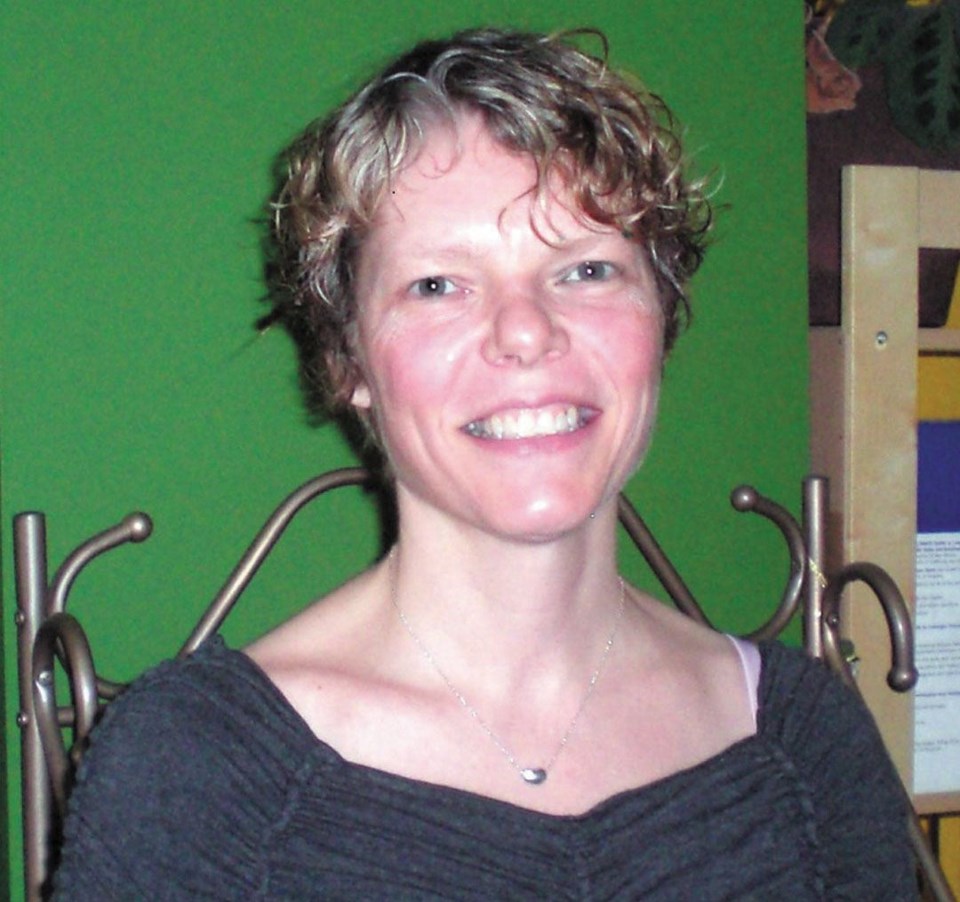As an aspiring medical student on the cusp of beginning her new career, Wendie den Brok had a basic awareness of the physiological effects of cancer.
But nothing could have prepared her for the news she had Stage 4 progression of the most deadly form of breast cancer -- triple-negative. For den Brok, it was like being handed a death sentence.
"Regardless of whether it was triple-negative or not, it was already pretty advanced, so I knew it was bad to begin with," said den Brok, 44, the guest speaker for the Evening of Pink fundraising dinner Friday at the Civic Centre.
"It essentially implied my life would be cut pretty short and I should probably prepare for that."
That fateful diagnosis came in 2005, the same day she learned she'd been accepted into UBC's medical school. She deferred starting the program for a full year, not knowing the effects her chemotherapy would have on her ability to keep up with a heavy school workload. The first round of chemo and radiation didn't work and she learned her cancer had gone metastatic, spreading to other parts of her body. By that time, she was in medical school listening to her colleagues talk about where they saw themselves as working doctors 10 years down the road.
"My goals were all about getting to next month, or getting from first year to second, very different from everybody else." said den Brok. "I had a couple of close friends [in medical school] who knew I had cancer but the majority did not. If people wanted to know I would tell them. I'm sure there were rumours going around."
Early in her first year of study, a pill-form of chemotherapy proved ineffective. Once she started a third round of treatment and knew she was going to lose her hair, den Brok agreed to have her head shaved as part of a cancer fundraiser, to help hide her condition. When her hair didn't grow back at the same rate as everyone else's did, more people learned she had cancer. It took three rounds of chemotherapy to put her into remission.
"The third regimen was a combination of two drugs and it was a regimen not typically used in breast cancer," said den Brok. "Around that time there were a few studies showing this particular chemotherapy did have benefit in women with triple-negative breast cancer. Now, if you look at the BC Cancer Agency protocols for triple-negative breast cancer you will see this protocol in place."
Triple-negative is named for the absence of three proteins typically found in breast tumour cells -- progesterone, estrogen and human epidermal growth factor receptor 2 (HER2). The triple-negative subtype accounts for 16 per cent of all breast cancer diagnoses and close to 25 per cent of breast cancer deaths. Early diagnosis often allows doctors to surgically remove the cancerous tissue before the triple-negative subtype becomes life-threatening. Although it is rare to recover from Stage 4 progression of the disease, survival rates are improving.
In March, the BC Cancer Agency Research team, in a study of triple-negative tumours successfully decoded the genetic makeup of the disease and discovered the condition results in hundreds of gene mutations, rather than just a single gene that leads to disease.
"Instead of one disease, one treatment, now we realize it's actually hundreds of diseases and we have to tailor that many more treatment therapies for the tumour," said den Brok.
"Throughout their evolution, each tumour is mutating so the goal is to try to find therapies that will go after that tumour at its specific period of evolution. We don't know yet, but there might be one chemotherapy that attacks 40 of those mutations, I suspect you won't need one for each mutation. First you have to know the enemy. Now we know what we have to target. Before, we were just throwing therapy at things randomly."
She's now been cancer-free for almost five years.
"With triple-negative breast cancer, if you're five years out, you're pretty much good to go, but you can't say that about other types of breast cancer," said den Brok. "The estrogen-receptor positive breast cancer, women can remain in remission for years and 15 or 20 years down the road it can rear its ugly head.
"For me, it's been really strange, because for the first two years I was told this will cut my life short and my whole thinking about my whole way of being and living and thinking and a future was different. So the last couple years have been a bit awkward and challenging, but things are evolving."
After three years of residency in Victoria practicing internal medicine, den Brok is about to change course in her career. Seeing how oncologists work as they try to cure cancer patients inspired her to choose a subspecialty in oncology, the branch of medicine that deals specifically with cancer.
She hopes her presentation at Evening of Pink will inspire other women with breast cancer to not lose faith they too can beat the disease.
"Regardless of the prognosis and diagnosis you have to keep putting one foot in front of the other and keep moving forward," she said. "I was pretty young when I was diagnosed [36] and I wasn't paying attention to my body and that's the message I want to get across. Regardless of how young you are, you have to have an idea what's going on with your own body and pay attention."
Tickets for Evening of Pink are available at Inn Flower Place at the Coast Inn of the North for $85 each. A silent auction is also planned for the evening.



